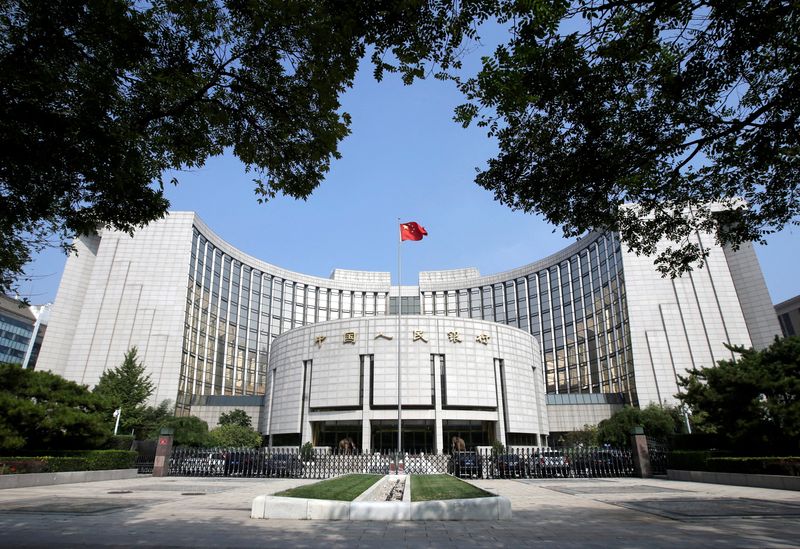HONG KONG/SHANGHAI (Reuters) -China’s central bank said on Thursday it would start accepting applications from financial institutions to join a newly created funding scheme, initially worth 500 billion yuan ($70.62 billion), to aid the capital market.
The People’s Bank of China (PBOC) said eligible securities firms, fund companies and insurers can apply to join the swap scheme, which gives them easier access to funding to buy stocks.
The announcement came after Chinese stocks tumbled on Wednesday following a blistering rally, as previous investor enthusiasm about Beijing’s plans to revive the economy waned.
“The swap facility is designed to provide liquidity support to non-bank financial institutions, and can help lift confidence in the stock market,” said Ming Ming, analyst at Citic Securities.
The PBOC first announced the scheme on Sept. 24 as part of a broad package of policies to stimulate the economy and boost capital markets.
Under the swap facility, eligible securities firms, fund companies and insurers can use their assets including bonds, stock ETFs and holdings in constituents of the CSI 300 Index as collateral in exchange for highly liquid assets such as treasury bonds and central bank bills.
The initial scale of the swap programme is set at 500 billion yuan, and can be expanded in the future.
Creating this tool “doesn’t mean the central bank is entering the stock market, as there’s no increase in the base money supply, or expansion of PBOC’s balance sheet,” Xu Zhong, an official of China’s interbank market regulatory body wrote in an article published this week.
“It remains a red line that bank loans cannot illegally enter the stock market,” said Xu, vice president of the National Association of Financial Market Institutional Investors, a regulatory body.
He drew parallels with the Federal Reserve’s Term Securities Lending Facility (TSLF), which was created by the U.S. central bank during the global financial crisis to address funding pressure faced by primary dealers.
Citic’s Ming said by allowing financial institutions to swap equity assets with treasuries, the central bank can influence both the stock market and the bond market in a coordinated manner.
Shujin Chen, China economist at Jefferies, said the swap programme helps increase leverage in the stock market but noted there were already multiple tools that could be used.

“The biggest concern is how many institutions would like to participate in this swap,” Chen said, adding there’s also a lack of operational details about the scheme.
($1 = 7.0800 )
